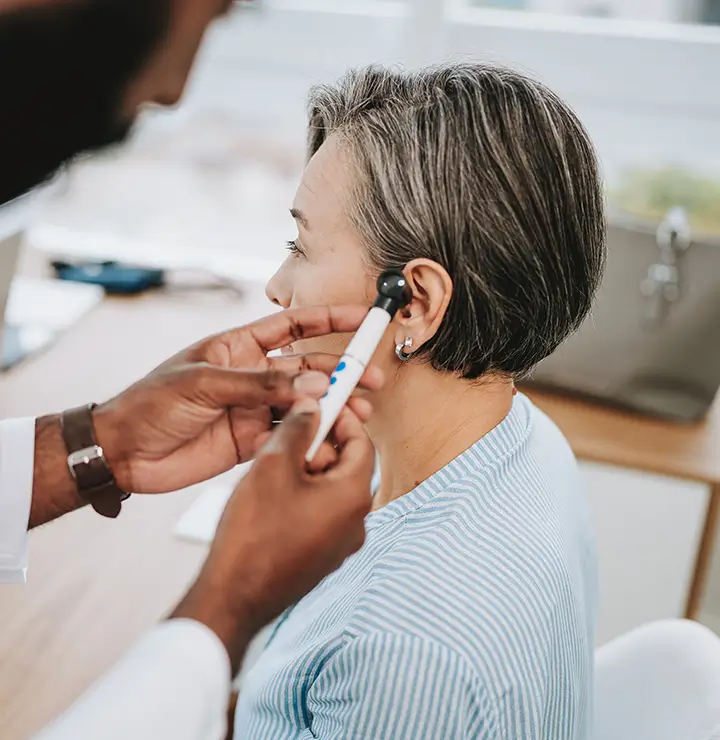Tinnitus
Tinnitus (tin-i-tus) is the perception of a sound in your ear when there is no noise in the environment. It may sound like a ringing, roaring, clicking or hissing sound. It can be constant or intermittent.
Tinnitus is generally associated with hearing loss. It can also be a symptom of other problems, such as blood vessels issues or tumors.
There are as many as 50 million Americans with tinnitus. Approximately two to four million have it so severely that it interferes with their daily activities. People with severe cases of tinnitus may find it difficult to hear, work or sleep.
Causes
- Hearing loss. People with tinnitus often have some kid of hearing loss. It is believed that the brain replaces hearing loss with the perception of a noise.
- Loud noises. You may have noticed ringing in your ears after a loud concert or exposure to loud noises. Generally, loud noises lead to hearing loss, which in turn can lead to tinnitus.
- Medications. Many medicines can cause tinnitus, including aspirin, ibuprofen, naprosyn and others.
- Other health problems, including tumors, heart and blood vessel issues, and jaw and neck issues.
Evaluation
Treatment begins with a comprehensive audiological and tinnitus evaluation in order to determine the most likely source and nature of your tinnitus.
From there, a custom program is designed to provide the necessary information and counseling as well as to find the most effective device or sound to speed habituation, meaning that we retrain the brain to reduce the perception of tinnitus.
Our tinnitus treatment team works to find custom solutions to each patient’s specific needs. Every patient receives treatment that is based on the latest research.
Treatment
We take a multidisciplinary team approach to treatment. This allows us to optimize therapy for every single patient.
Research shows that hearing aids and maskers for tinnitus have dramatically improved as therapies when combined with a structured education and counseling program.
Other treatments that may be considered include:
- Neuromonics device. This new device combines counseling with a music device with songs that are tailored to your hearing loss.
- Hearing aids. Most people with tinnitus have some degree of hearing loss. Wearing a hearing aid makes it easier for some people to hear the sounds they need to hear by making them louder. The better you hear other people talking or the music you like, the less you notice your tinnitus.
- Tinnitus maskers. Maskers are small electronic devices that use sound to make tinnitus less noticeable. Maskers do not make tinnitus go away, but they make the ringing or roaring seem softer. For some people, maskers hide their tinnitus so well that they can barely hear it. The idea is to sound a sound that is bothersome with one that is not. Some people sleep better when they use maskers. Listening to static at a low volume on the radio or using bedside maskers can help. These are devices you can put by your bed instead of behind your ear. They can help you ignore your tinnitus and fall asleep. Other available products include speakers inside a pillow that can play the sound of the ocean or the rain.
- Medicine or drug therapy. Some medicines may ease tinnitus. These medicines are generally given to reduce the anxiety or depression associated with tinnitus.
- Tinnitus retraining therapy. this treatment uses a combination of counseling and maskers. Otolaryngologists and audiologists help you learn how to deal with your tinnitus better. You may also use maskers to make your tinnitus less noticeable. After a while, some people learn how to avoid thinking about their tinnitus. It takes between six and 18 months for this treatment to work, but it can be very helpful.
- Counseling. People with tinnitus may become depressed. Talking with a counselor or people in tinnitus support groups may be helpful.
- Relaxing. Learning how to relax is very helpful if the noise in your ears frustrates you. Stress makes tinnitus seem worse. By relaxing, you have a chance to rest and better deal with the sound.








